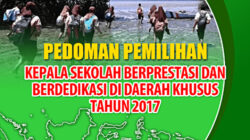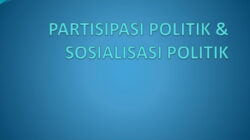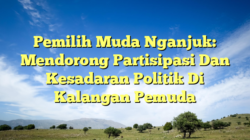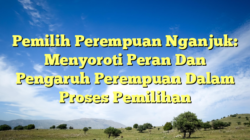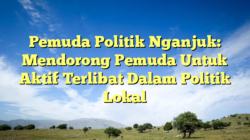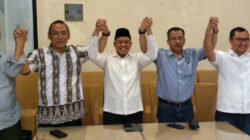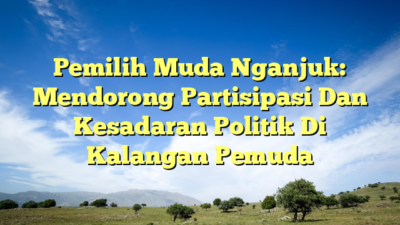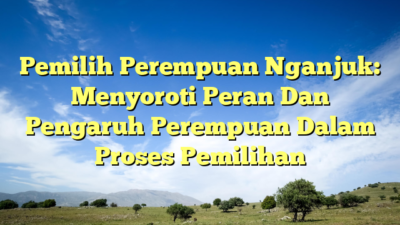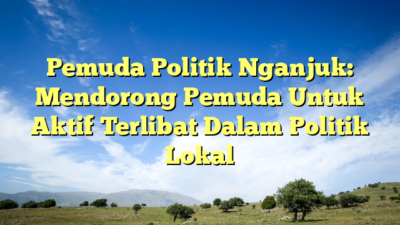Political power is an essential component of any society, and Indonesia is no exception. The country has a diverse political landscape, which is supported by various political forces that operate within its boundaries. These forces include political parties, interest groups, and individuals who wield power and influence in different ways. In this post, we aim to shed light on some of the kekuatan politik, or political forces, that shape the country’s political landscape.
Kekuatan-Kekuatan Politik di Indonesia, Asrinaldi – AJIBAYUSTORE
Asrinaldi’s book, Kekuatan-Kekuatan Politik di Indonesia, provides an insightful analysis of the various political forces that exist in the country. The book is a must-read for anyone interested in understanding the dynamics of Indonesian politics.
What are Political Forces?
Political forces refer to the groups, parties, and individuals that wield power or possess the ability to influence political decision-making in a certain area. These forces can operate at different levels, including national, regional, and local levels, and may have different goals and agendas. In Indonesia, several political forces exist, and they shape the country’s political landscape in various ways.
Why are Political Forces Important?
Political forces are essential in any society as they help to ensure that different voices are heard, and different perspectives are considered. Without political forces, power would be concentrated in the hands of a few, and the needs and expectations of the broader population would not be adequately addressed. Political forces also play a crucial role in shaping and influencing public policies, ensuring that they are in the best interest of the public.
The Benefits of Understanding Political Forces
Understanding political forces is critical, especially for those who are interested in engaging in politics or public life. By knowing the different political actors and their agendas, one can develop a better understanding of the political landscape, anticipate potential challenges, and identify opportunities for collaboration. Having knowledge of political forces also helps individuals make informed decisions and contribute more effectively to public life.
Ideas to Improve Political Awareness
There are various ways in which one can improve their political awareness, including:
- Reading books and articles about politics
- Attending political events, such as rallies or protests
- Following news and updates from reputable sources
- Engaging in political discussions with peers
- Volunteering for political campaigns or organizations
How to Navigate Political Forces in Indonesia
Indonesia’s political landscape can be complex and challenging to navigate, especially for those who are not familiar with it. However, there are some tips that can help individuals better understand and engage with political forces in the country:
1. Know the Political Parties
Knowing the different political parties and their platforms is crucial in understanding the country’s politics. One should be able to identify the major parties, their history, ideologies, and leaders.
2. Understand Regional Politics
Indonesia is a vast country, and political dynamics can differ from one region to another. It is essential to have an understanding of the different political trends and forces that exist in various regions.
3. Follow the News
Keeping track of political news and updates is an excellent way to stay informed about the country’s political landscape. It is advisable to follow reputable sources and to avoid sources that may have a political bias.
4. Engage in Political Discourse
Engaging in political discourse with peers is a great way to exchange ideas and perspectives. It can help individuals learn from others and develop their political thinking and understanding.
5. Participate in Elections and Campaigns
Participation in elections and campaigns can be an effective way to engage with political forces and contribute to public life. By voting, individuals can help shape the political landscape, and by volunteering for campaigns, they can support causes and candidates that align with their values and beliefs.
In conclusion, Indonesia’s political landscape is shaped by various political forces, including political parties, interest groups, and individuals who wield power and influence. Understanding these forces is crucial in developing an informed perspective on the country’s politics and contributing effectively to public life. By following some of the ideas and tips outlined in this post, individuals can strengthen their political awareness and navigate the country’s politics more effectively.
GUDANG BUKU SOSIAL: ANALISIS KEKUATAN POLITIK DI INDONESIA
Another valuable resource for understanding political forces in Indonesia is Gudang Buku Sosial, which provides an insightful analysis of political forces in the country.
What is Political Analysis?
Political analysis is a method of studying political behavior and decision-making processes. It aims to identify and understand the different forces and factors that shape politics and influence political outcomes. Political analysis can encompass various methods, including empirical research, qualitative and quantitative data analysis, and historical analysis.
Why is Political Analysis Important?
Political analysis is essential in developing an informed perspective on politics. It helps individuals understand the dynamics of political decision-making, anticipate potential challenges, and identify opportunities for collaboration. Political analysis also plays a crucial role in informing public policy, ensuring that policies are in the best interest of the public.
The Benefits of Political Analysis
Political analysis has several benefits, including:
- Developing an informed perspective on politics
- Anticipating and identifying potential challenges and opportunities
- Informing public policy decisions
- Strengthening critical thinking skills
- Contributing to public life more effectively
Ideas for Conducting Political Analysis
There are different ways in which one can conduct political analysis, including:
- Researching and analyzing political data and trends
- Examining historical political events and their outcomes
- Conducting interviews with political leaders and experts
- Attending political events and rallies
- Engaging in political discourse with peers
How to Conduct Political Analysis
Conducting political analysis can be challenging, especially for those who are new to it. However, there are some tips that can help individuals conduct political analysis more effectively:
1. Identify the Research Question
Identifying the research question is crucial in developing a focused and coherent analysis. The research question should be specific and relevant to the research topic.
2. Conduct Research
Conducting research is the foundation of political analysis. It involves collecting and analyzing political data, such as voting patterns, public opinion polls, and policymaker speeches.
3. Analyze the Data
After collecting the data, the next step is to analyze it. This involves examining the data for trends, patterns, and correlations that can inform the research question.
4. Draw Conclusions
Based on the data analysis, the next step is to draw conclusions. The conclusions should be informed by the data and the research question.
5. Present Findings
Finally, the last step is to present the findings of the research. This can be done through various means, such as reports, presentations, or publications.
Overall, political analysis is a valuable tool for understanding politics and contributing to public life. By following the tips and ideas outlined in this post, individuals can conduct political analysis more effectively and develop an informed perspective on politics.
Peta Kekuatan Politik Nasional | Dinamika Politik Masa Demokrasi Terpimpin
The Peta Kekuatan Politik Nasional is a helpful resource for understanding the various political forces that operate at the national level in Indonesia.
What is a Political Map?
A political map is a visual representation of political territories, such as countries, states, or regions. The map highlights the different political boundaries, and sometimes includes information such as population, political parties, and electoral results.
Why are Political Maps Important?
Political maps are an essential tool for understanding the political landscape of a particular area. They help individuals develop a better sense of political territories, identify potential challenges, and anticipate opportunities for collaboration. Political maps can also inform policy decisions, as they provide information about politics at a glance.
The Benefits of Political Mapping
Some benefits of political mapping include:
- Identifying political territories and boundaries
- Anticipating potential challenges and opportunities
- Informing policy decisions
- Strengthening critical thinking skills
- Contributing to public life more effectively
Ideas for Using Political Maps
Some ways in which one can use political maps include:
- Identifying political territories and their boundaries
- Examining electoral results and voter behavior
- Identifying the distribution of political parties
- Comparing political landscapes between different areas
- Anticipating potential challenges and opportunities
How to Read Political Maps
Reading political maps might seem challenging, especially for beginners. However, there are some essential components that individuals should understand when reading a political map:
1. Legend
The legend is a critical component of any political map. It explains the meaning of different colors, symbols, and lines used on the map.
2. Territories and Boundaries
The map should provide a clear picture of the different political territories and their boundaries. It should highlight the different regions, districts, or states, depending on the level of the map.
3. Electorate Results
If the map includes electoral results, it should show how different areas voted and what percentage of the vote each party or candidate received.
4. Population Density
Some political maps also include population density, which indicates how many people live in a particular area. This information can inform discussions about the distribution of resources and political representation.
5. Movement and Migration
Finally, some political maps show the movement of people and migration patterns. This information can be useful in understanding how populations shift over time and what impact this has on politics.
Overall, political maps are a valuable tool for understanding the political landscape of a particular area. By following the tips and ideas outlined in this post, individuals can read political maps more effectively and develop an informed perspective on politics.
Kekuatan-kekuatan Politik – Haniah Hanafie & Ana Sabhna Azmy – Rajagrafindo Persada
Kekuatan-kekuatan Politik, authored by Haniah Hanafie and Ana Sabhna Azmy, is another valuable resource for understanding political forces in Indonesia.
What is Political Power?
Political power is the ability to influence political decisions and outcomes. It can be exercised by individuals, groups, institutions, or states, and it can take various forms, including economic, cultural, or military power. Political power is critical in shaping politics and public policies, and understanding its distribution and exercise is essential in developing an informed perspective on politics.
Why is Political Power Important?
Political power is crucial in ensuring that different voices are heard and different perspectives are considered. It helps to balance the interests of different groups and ensure that public policies are in the best interest of the public. Political power also plays a crucial role in shaping and influencing public opinion, as it helps to frame political issues and arguments.
The Benefits of Understanding Political Power
Understanding political power has several benefits, including:
- Developing an informed perspective on politics
- Anticipating potential challenges and opportunities
- Identifying power dynamics and inequalities
- Informing policy decisions
- Strengthening critical thinking skills
Ideas for Understanding Political Power
Some ways in which one can understand political power include:
- Studying political history and institutions
- Examining the political behavior of individuals and groups
- Analyzing economic and social factors that shape politics
- Tracking political campaigns and election results
- Engaging in political discourse with peers and experts
How to Exercise Political Power
Individuals and groups can exercise political power in various ways, including:
- Voting in elections
- Joining political parties or interest groups
- Campaigning for political candidates or causes
- Engaging in civil society organizations
- Advocating for policy change
Overall, understanding political power and how it is exercised is crucial in developing an informed perspective on politics. By following the tips and ideas outlined in this post, individuals can better understand political power dynamics in Indonesia and contribute more effectively to public life.
kekuatan politik di indonesia – Hukamnas.com
The website hukamnas.com provides an insightful analysis of political power in Indonesia.
What is Political Influence?
Political influence is the ability to sway political decisions and outcomes. It can take various forms, including economic, cultural, or social influence. Political influence is a critical element of politics, and understanding its distribution and exercise is essential in developing an informed perspective on politics.
Why is Political Influence Important?
Political influence is crucial in shaping politics and public policies. It helps to frame political arguments and issues, and it plays a critical role in promoting the interests of different groups. Political influence can also help to balance power dynamics and ensure that different voices are heard.
The Benefits of Understanding Political Influence
Understanding political influence has several benefits, including:
- Developing an informed perspective on politics
- Anticipating potential challenges and opportunities
- Identifying power dynamics and inequalities
- Informing policy decisions
- Strengthening critical thinking skills
Ideas for Understanding Political Influence
Some ways in which one can understand political influence include:
- Examining the behavior of political actors and interest groups
- Tracking political campaigns and election results
- Studying political and economic systems that shape influence
- Engaging in political discourse with peers and experts
- Participating in civil society organizations
How to Exercise Political Influence
Individuals and groups can exercise political influence in several ways, including:
- Making donations to political campaigns or candidates
- Engaging in lobbying activities
- Participating in civil society organizations
- Advocating for policy change
- Building coalitions with other groups
Overall, understanding political influence is crucial in contributing to public life and developing an informed perspective on politics. By following the tips and ideas outlined in this post, individuals can better understand political influence dynamics in Indonesia and contribute more effectively to

